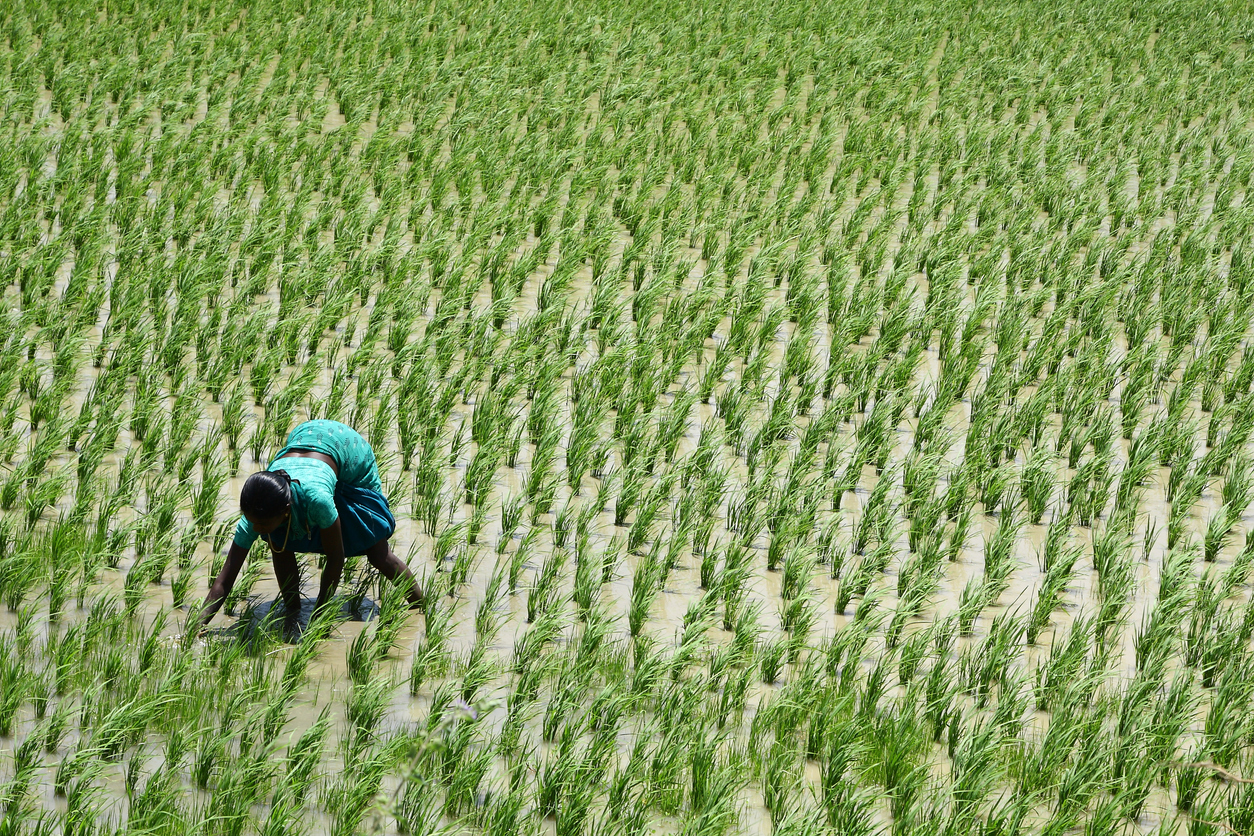
CRISPR-Cas9 Speeds Up Domestication of African Rice Landraces
March 11, 2020| |
Researchers from the University of Milan developed protocols for genetic transformation of African rice varieties to enable the use of CRISPR-Cas9.
African Oryza glaberrima and Oryza sativa are known to be valuable sources of favorable traits because of their adaptation to the continent's extreme environmental conditions. These varieties exhibit superior resistance to endemic pests and tolerance to drought and nutrient deficiencies compared to Asian rice varieties. However, "domestication traits" including seed shattering, lodging, and seed yield are not well established in these African landraces. Thus, the use of these African varieties for high production agriculture is limited by unpredictable yield and grain quality. To address this concern, the researchers developed protocols for the improvement of the African rice landraces using CRISPR-Cas9.
As proof of concept, they used African landrace Kabre to target the "domestication loci" and enhance its agronomic potential. Genetic transformation with CRISPR-Cas9-based vectors led to single and simultaneous several gene knockouts. Plants with reduced height to decrease lodging were generated by disrupting the HTD1 gene. The researchers detected three loci that control seed size and/or yield then targeted them using a multiplex CRISPR-Cas9 construct. This led to mutants with significantly enhanced seed yield.
Read the research article in Plos One.
| |
You might also like:
- Experts Evaluate the Potential Effect of Gene Flow from IR/HT Maize to Mexican Landraces
- Scientists Identify Stem Rust-resistant Wheat Landraces
- CIMMYT Scientist Uses Native Maize Varieties to Find Novel Traits for Breeding
Biotech Updates is a weekly newsletter of ISAAA, a not-for-profit organization. It is distributed for free to over 22,000 subscribers worldwide to inform them about the key developments in biosciences, especially in biotechnology. Your support will help us in our mission to feed the world with knowledge. You can help by donating as little as $10.
-
See more articles:
-
News from Around the World
- Biotech Crops Market to Exceed US$37.46B by 2027
- Long Wait Over as Kenya Finally Commercializes Bt Cotton
- US Promotes GMO Education to Consumers through 'Feed Your Mind' Initiative
- CRISPR Genome Editing Strategy Could Improve Rice, Other Crops
- GM Food Label Is Unrecognized by Most Consumers in Brazil
- Research Team Discovers Genetic Diversity Improves Yield in Hybrid Crop Varieties
- EU Leading Scientists Warn: "European GMO Laws No Longer Fit"
-
Research Highlights
- Gene from a Mycoparasitic Fungus Confers Enhanced Resistance to Sclerotinia Stem Rot in Soybean
-
Plant
- CRISPR-Cas9 Speeds Up Domestication of African Rice Landraces
- Researcher Establishes CRISPR-Cas12b System for Plant Genome Engineering
-
Read the latest: - Biotech Updates (December 17, 2025)
- Gene Editing Supplement (December 17, 2025)
- Gene Drive Supplement (February 22, 2023)
-
Subscribe to BU: - Share
- Tweet

